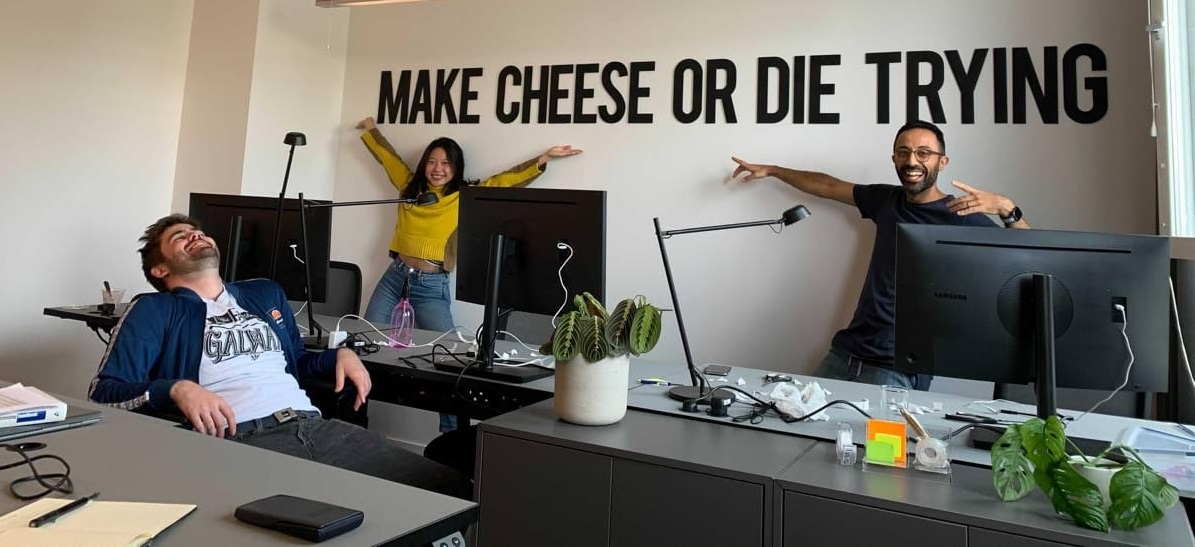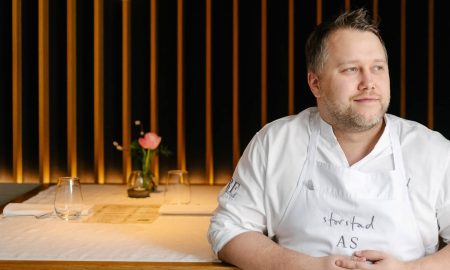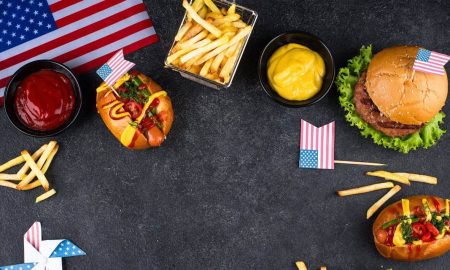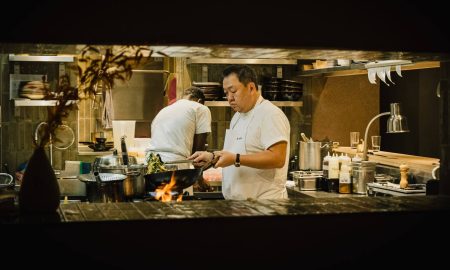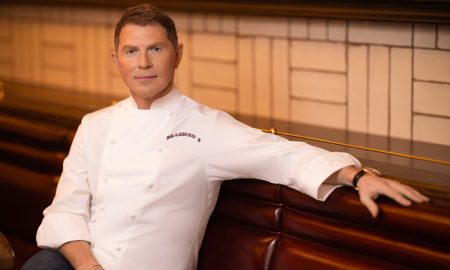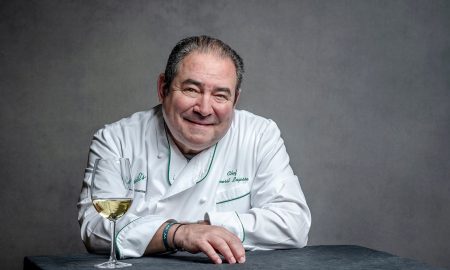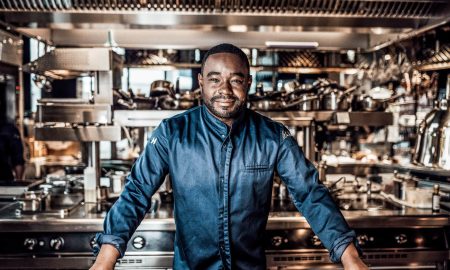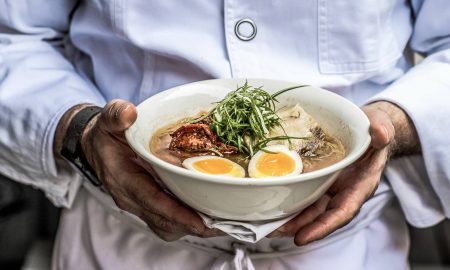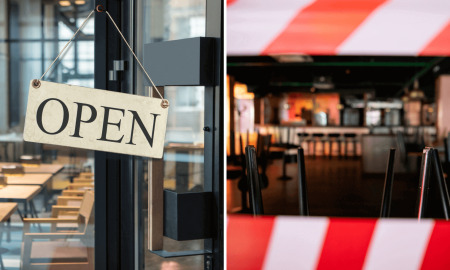Aleph Farms
Co-founded by the food-tech incubator The Kitchen Hub, and Prof. Shulamit Levenberg of the Technion Institute of Technology in Israel, Aleph Farms‘ 3D bioprinting technology combines cell cultivation and 3D printing to create meat products. Its first thin-cut steak, unveiled in 2018 was a world first, but didn’t involve any 3D technology. Today the bioprinting technology consists of the printing of actual living cells that are incubated to grow and interact, in order to acquire the texture and qualities of a real steak. It takes two years to produce a steak through industrial farming methods, in the lab it can be produced in 3-4 weeks and without slaughtering any animals or harming the environment. As a way of reaching potential consumers, Aleph Farms has established a Gen Z advisory board, made up of young consumers who have an interest in climate change and will also act as ambassadors to their peer groups. A nod to the fact that they will make up a large part of the consumers of the future.
Sieh dir diesen Beitrag auf Instagram an
Manna Aero
This high-growth early stage venture with a predicted path towards unicorn status – a way to describe companies valued at $1bn or more – Manna Aero aims to make drone delivery mainstream and replace road delivery. The company will partner with restaurants or food courts that have a high-throughput of orders and a small outdoor space to house a drone-loading team. The drone is about the size of a computer printer and will carry meals weighing two kilograms more than two kilometers in under three minutes. On arrival the drone will hover and wait for the customer to accept delivery using an app, having indicated when ordering exactly where they want their food to land — on the lawn, an outdoor dining table or just in the driveway. Initially Manna, partnered with Just Eat for a pilot project at University College Dublin, which was postponed due to Covid. During the pandemic the company stepped in to help Ireland’s health service operator delivering medication to communities.
Sieh dir diesen Beitrag auf Instagram an
Stockeld Dreamery
This Swedish plant-based start-up last year clinched €3.25m of seed funding as it works to develop better plant-based cheese. Entrepreneur Sorosh Tavakoli and food scientist Anja Leissner, founded Stockeld Dreamery in 2019, to reinvent the vegan foods using today’s technologies and science, to make them tastier, more nutritious and more sustainable. Having found existing plant-based cheese left much to desire – and accounted for less than 1% of cheese sales – they have focused their attention on this particular market segment.
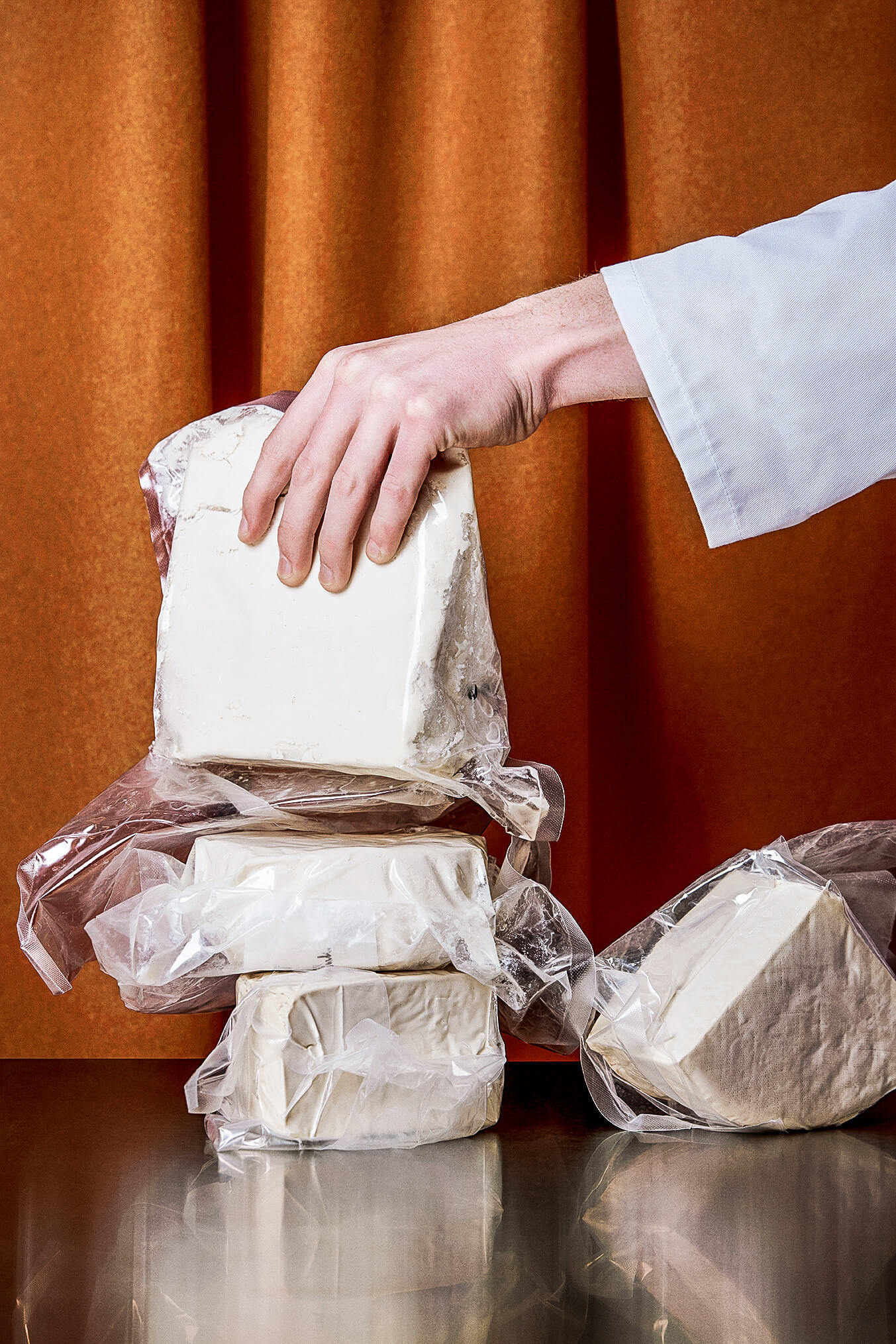
Plant-based cheese | Image: Stockeld
Feltwood
Creating biodegradable packaging as an alternative to plastic: this food-tech start-up based in Zaragoza, Spain, is part of the effort to create eco-friendly solutions for the foodservice industry. Feltwood has created the technology to produce food packaging materials from farming and vegetable waste that is not suitable for human consumption. Feltwood packaging is made 100% of vegetable fibres. With no plastics or binders, it represents a genuine alternative to conventional packaging materials. The materials can be used to manufacture fruit and vegetable trays for supermarkets.
Karma Kitchen
The huge rise in demand for food delivery in recent years has seen a boom in the cloud and ghost kitchen segment. Launched in London in 2018 by sisters Gini and Eccie Newton this kitchen rental company has seen explosive growth and last year it raised £252m in series A funding. The sisters launched their first business, Karma Cans, a corporate catering service in 2014 and followed up with Karma Kitchens three years ago when they struggled to find appropriate facilities to house their lunch delivery service. They started Karma Kitchen to help food businesses grow without being hampered by a lack of appropriate facilities, which traditionally require significant investment to acquire. They have grown to offer two locations in London and have their sights set on European expansion.
Sieh dir diesen Beitrag auf Instagram an
Zero Ritual Proof
A sure sign of a trend taking hold is when the major players start getting involved. Last year global beverage giant Diageo made an investment in Zero Ritual Proof, the first spirit alternative made in the US using all-natural botanicals to replicate the taste, smell and burn of liquor without alcohol. It was confirmation, if any was needed, that non-alcoholic is one of the biggest trends of our time.

The Ritual Lineup | Image: Zero Ritual Proof
Currently the Chicago company offers tequila, gin and whisky alternatives and it has enjoyed great success since launch in 2019 – it outsold projections by 80% last year and the team expects the growth to continue in what they call a movement similar to that of vegan food. All the indications point to a further boom in the category: apparently one in four people want to stop drinking alcohol globally. No and low alcohol is definitely one to watch in the future as the market gets more crowded.
Sieh dir diesen Beitrag auf Instagram an
Karakuri
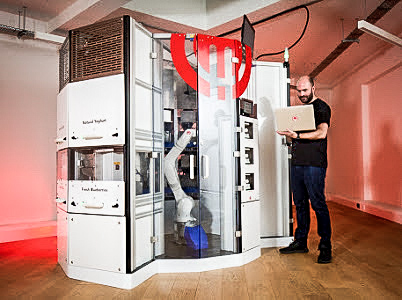
Robot innovations | Image: Karakuri
With heavyweight names, including chef Heston Blumenthal, on the board and a recent investment, Karakuri stands out among many companies working on robotic innovation in foodservice. The robot chef has long been touted as the future of food. From burger flipping to cocktail making, innovators have attempted to implement robotics in foodservice for several years. This UK-based start-up wants to develop the idea further and in December it unveiled the prototype of its DK-One robot chef; able to prepare personalized bowls of food on for customers on demand, with several orders on the go at any time. The company’s stated aims include reducing food waste, improving customer choice and making it easier to eat healthy food.
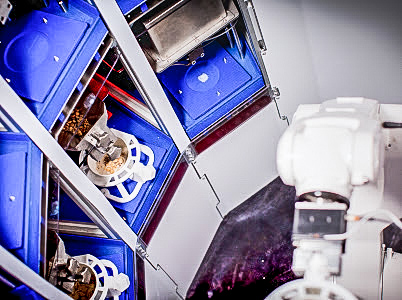
robot innovations | Image: Karakuri
DK-One, the world’s first robotic solution for high-throughput, fast turnaround, 100% individualized and portion-controlled high-volume catering applications, can serve several hundred meals an hour and can dispense any ingredient type, whether wet, dry, soft or hard. Karakuri aims to have robots installed and in serving customers action next year.


